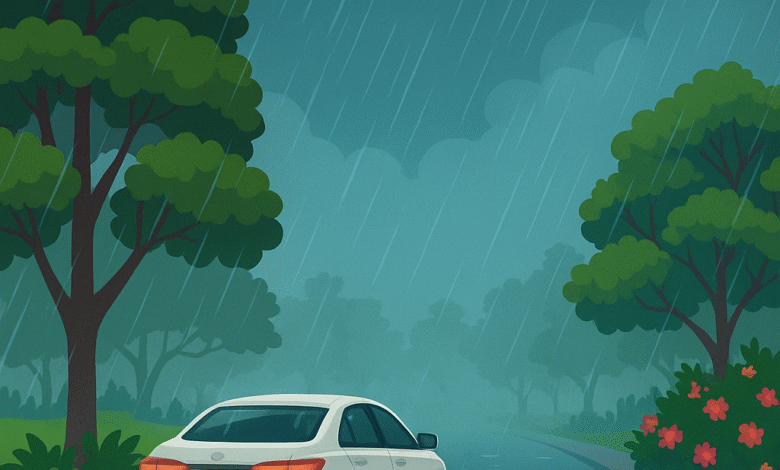Monsoon Rains in Pakistan: Death Toll Rises, Urgent Precautions and Compassion Needed

On the morning of Wednesday, July 16, 2025, the day began with steady rainfall. The soft, hushed chirping of birds was quickly drowned by the roaring sound of rain. As families prepared traditional breakfasts of tea and parathas, the rain poured relentlessly. Sandy plains, lowlands, and mountainous regions began to flood. Residents of informal settlements not only saw their homes submerged, but some were forced to swim with their livestock through the rising waters. Each drop of rain seemed to cry out, demanding answers from those in power—how long will the marginalized continue to lose their lives and belongings in floods without real action?
Rainfall and Rising Death Toll:
This year’s monsoon season began in June, affecting northeastern regions first and now extending across the country. So far, 111 deaths have been reported due to flash floods and landslides, with the highest casualties in Punjab. Several roads there resemble raging rivers.
According to NDMA (National Disaster Management Authority), over 200 people have been injured. Devastating floods and torrential rains have caused widespread destruction. In the past 24 hours, 19 more deaths and many injuries were reported.
In Khyber Pakhtunkhwa, 9 people, including children, lost their lives in various incidents. In Kohat, a house roof collapse claimed one life. In Malakand, two sisters died after a wall collapsed, while in Jamrud, two girls were swept away by floods. In Lakki Marwat, four children drowned in a pond.
In Punjab, 10 fatalities were reported due to rain-related incidents. In Bahawalnagar, the roof of a madrassa collapsed, killing two children and injuring 12 others. In Arifwala, two brothers were trapped under a collapsed house—one died, the other was injured. In Chiniot, three people were electrocuted. In Okara, lightning strikes killed a boy and a girl, injuring another girl. Additionally, roof collapses in Okara injured seven people, including four children. Incidents were also reported in Raiwind, Kamalia, and Kasur, where multiple people were injured. In Tandlianwala, a four-year-old child died and four others were injured when a weak roof gave way. In Renala Khurd and Pakpattan, five people, including a woman, were hurt due to roof collapses. In Sharqpur Sharif, a man died after being struck by lightning.
Weather Forecast:
The Pakistan Meteorological Department has forecast that heavy rains will continue in July and August. Citizens are advised to remain cautious and prepare for ongoing weather disturbances.
Essential Safety Measures:
Everyone is urged to follow these precautionary guidelines:
-
Stay away from electric wires during rainfall.
-
Do not touch exposed wires or poles, especially in wet areas.
-
Avoid handling electrical appliances with wet hands or bare feet.
-
Do not stand under trees, electric poles, or transformers during storms or rain.
-
As monsoon rains continue, areas once in need of water now welcome it as a blessing, but for many low-lying regions, this rain has become a trial.
-
Flooding has submerged towns, rivers and streams are overflowing, homes have been inundated, livestock swept away, and lives lost.
-
This is a time for caution, patience, and compassion.
-
Residents in low-lying areas should avoid unnecessary travel.
-
Maintain distance from power lines and broken wires.
-
Move livestock to higher ground if possible.
-
Those in weakly built homes should check their walls and roofs immediately. Make repairs as soon as the rain stops.
-
Keep essentials such as mobile phones, medication, a lighter, and dry food close by.
Islam teaches us to face trials with patience, prayer, and care. The Qur’an says: “Indeed, with every hardship comes ease” (Surah Al-Inshirah: 6).
Compassion and Timely Support:
This is not just a time to protect ourselves, but also to help others. If you and your family are safe, look around—someone nearby may need your assistance. The floodwaters will eventually recede, but the good we do today, the lives we save, and the help we offer, will never be forgotten.





